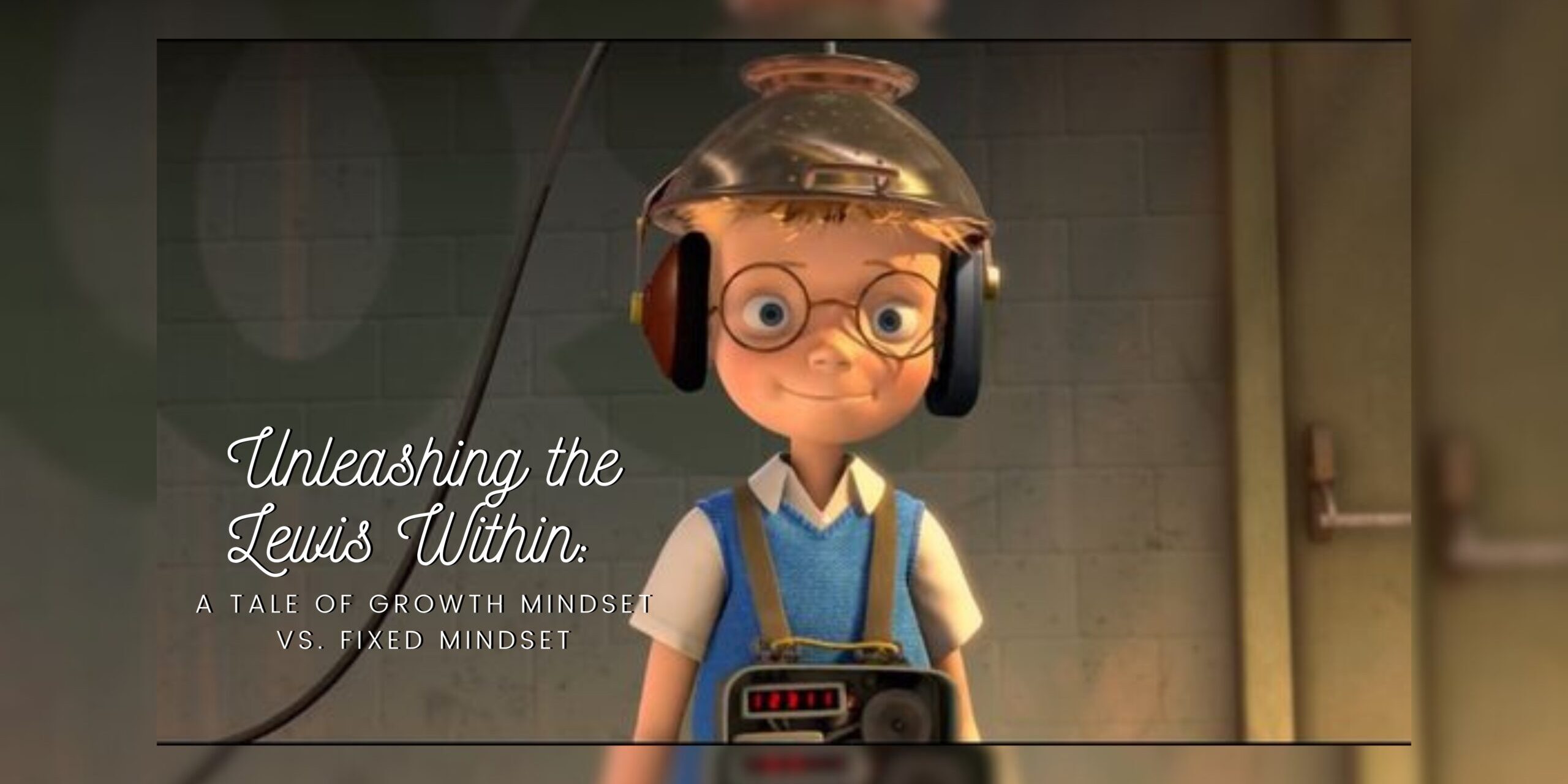In today’s fast-paced world, characterized by rapid technological advancements and constant change, fostering a growth mindset in the workplace is paramount. Rooted in the belief that skills and intelligence can be developed through effort and perseverance, a growth mindset cultivates resilience, innovation, and a willingness to tackle challenges head-on. The 2007 animated film “Meet the Robinsons” vividly illustrates this journey through the contrasting experiences of its characters, Lewis and Goob.
Lewis, a young inventor brimming with determination, embodies the essence of a growth mindset. Guided by the mantra “Keep Moving Forward,” he embraces challenges as opportunities for growth and discovery. Conversely, Goob’s fixed mindset traps him in a cycle of resentment and stagnation, preventing him from embracing new opportunities.

As Lewis grew up, he lived by the motto “Keep Moving Forward,” a mantra that encapsulates the essence of a growth mindset. This motto, instilled in him by his future self, Cornelius Robinson, serves as a guiding principle throughout Lewis’s journey. Cornelius, a visionary inventor and an older version of Lewis, embodies the epitome of a growth mindset. He constantly encourages Lewis to embrace challenges, learn from failures, and persist in the pursuit of his dreams.
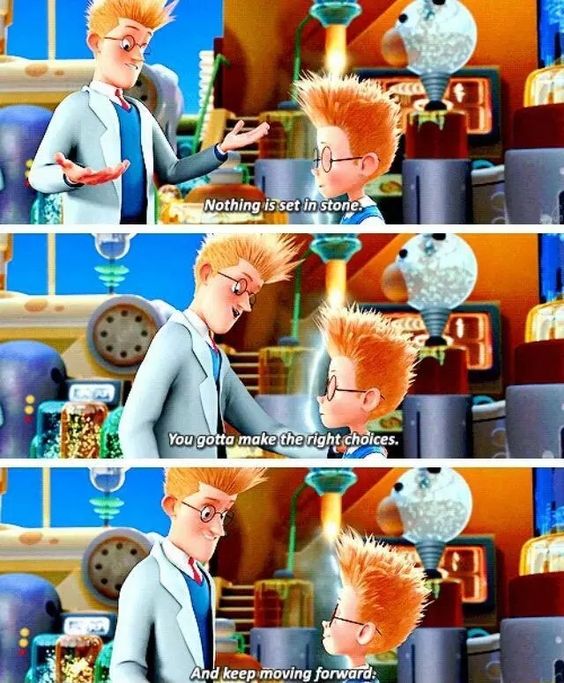
In contrast, Goob, Lewis’s roommate and former friend, embodies the traits of a fixed mindset. Consumed by bitterness and resentment over past failures, Goob adopts a defeatist attitude towards life. He blames external circumstances and others for his misfortunes, failing to take responsibility for his actions. Instead of seeing setbacks as opportunities for growth, Goob wallows in self-pity, ultimately becoming trapped in a cycle of negativity and stagnation.

The disparities in Lewis and Goob’s mindsets offer profound insights into what kind of approaches to work they might have and how they would navigate challenges within the workplace, highlighting the significance of mindset in professional settings:
Approach to Challenges:
Lewis:
When faced with challenges, Lewis is the kind of employee who demonstrates curiosity and determination. He views obstacles as opportunities for growth and innovation. In the workplace, this mindset translates into a proactive approach to problem-solving. Lewis actively seeks out challenges, seeing them as chances to develop new skills and knowledge. His willingness to step out of his comfort zone and tackle difficult tasks makes him an invaluable asset to his team.


Goob:
In contrast, Goob is the type that shies away from challenges, preferring the safety of his comfort zone. Fearful of failure and uncertainty, he avoids taking risks and tends to stick to what he knows. In the workplace, this mindset can hinder his ability to adapt to change and innovate. He may miss out on valuable opportunities for growth and development, ultimately limiting his professional success.
Response to Setbacks:
Lewis:
When confronted with setbacks, Lewis is the type that remains resilient and optimistic. He views failures as learning opportunities and uses them to refine his approach and improve his skills. In the workplace, this resilience enables Lewis to bounce back quickly from setbacks and maintain a positive attitude. He learns from his mistakes and adapts his strategies accordingly, ultimately achieving greater success in his endeavors.

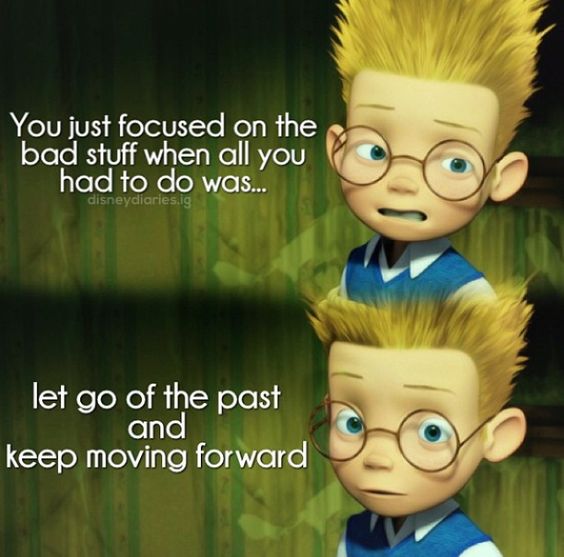
Goob:
Conversely, Goob’s fixed mindset causes him to become discouraged and demotivated in the face of setbacks. Rather than learning from failure, he allows setbacks to undermine his confidence and self-esteem. In the workplace, this defeatist attitude can impede his progress and hinder his ability to reach his full potential. He may become stuck in a cycle of negativity, unable to move forward or achieve his goals.
Collaboration vs. Isolation:
Lewis:
Lewis thrives in collaborative environments, valuing the input and expertise of others. He recognizes the importance of teamwork and actively seeks out opportunities to collaborate with colleagues. In the workplace, his collaborative nature fosters creativity, innovation, and synergy within the team. He leverages the diverse perspectives and talents of his peers to achieve common goals and drive success.
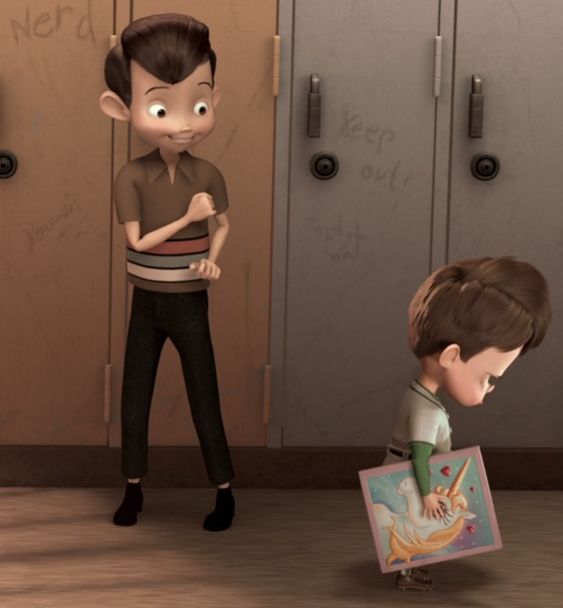
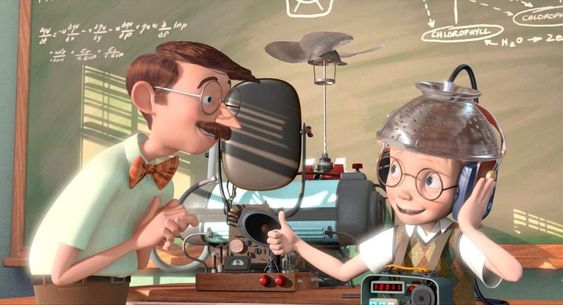
Goob:
In contrast, Goob isolates himself from others, resentful of their success and unwilling to seek support or guidance. His reluctance to collaborate alienates him from his colleagues and limits his ability to access valuable resources and insights. In the workplace, this isolation can hinder Goob’s professional growth and development, as he misses out on opportunities for mentorship, learning, and collaboration.
Focus on Learning vs. Seeking Validation:
Lewis:
Lewis prioritizes learning and growth, valuing progress over perfection. He is the kind of employee who embraces new challenges and actively seeks feedback to improve his skills and performance. In the workplace, this focus on learning enables him to continuously develop and evolve, staying ahead of the curve in an ever-changing environment. He is open to constructive criticism and views it as an opportunity for self-improvement.
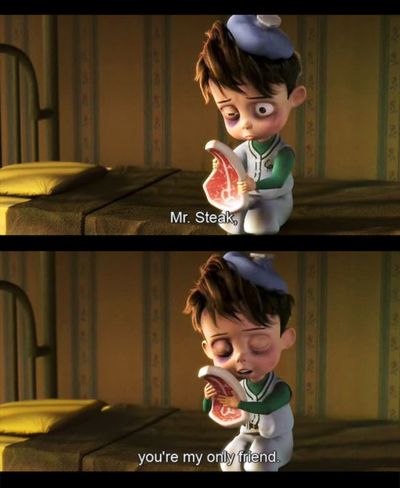
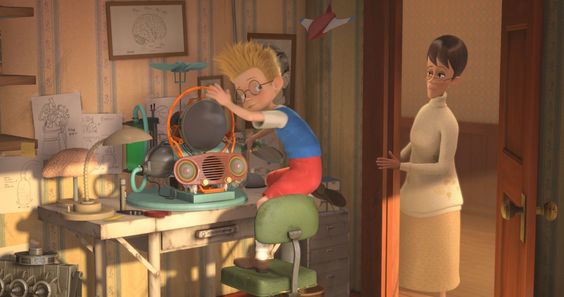
Goob:
Conversely, Goob seeks external validation and approval, prioritizing short-term success over long-term growth. He avoids challenges that may challenge his ego and seeks to maintain a sense of comfort and security. In the workplace, this validation-seeking behavior can hinder Goob’s professional development, as he becomes complacent and resistant to change. He may prioritize tasks that make him look good in the eyes of others, rather than focusing on meaningful learning and growth opportunities.
By examining the experiences of Lewis and Goob, we gain valuable insights into the transformative power of mindset in the workplace:
- Embrace Challenges: Approach challenges with a growth mindset, seeing them as opportunities for growth and development.
- Learn from Failure: View setbacks as valuable learning experiences and opportunities for improvement.
- Foster Collaboration: Embrace collaboration and teamwork to leverage the collective strengths and expertise of the team.
- Prioritize Learning: Continuously seek out opportunities for learning, growth, and self-improvement, valuing progress over perfection.
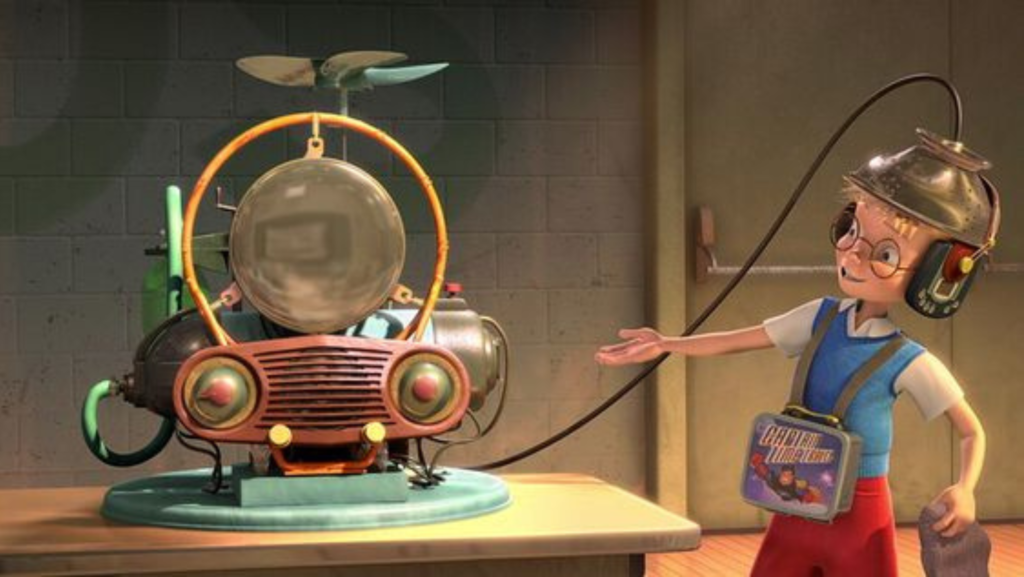
The contrasting experiences of Lewis and Goob underscore the profound impact of mindset on professional success. By cultivating a growth mindset and adopting the behaviors and attitudes exemplified by Lewis, individuals can overcome obstacles, unlock their full potential, and thrive in the dynamic and ever-evolving landscape of the workplace. Embracing challenges, learning from failures, fostering collaboration, and prioritizing continuous learning are key principles that can guide individuals toward greater success and fulfillment in their professional endeavors.
At ExeQserve, we believe that cultivating a growth mindset is essential for both individual and organizational success. Just like Lewis in Meet the Robinsons, professionals and leaders must embrace challenges, learn from failures, and continuously innovate. Through our leadership development programs, employee training workshops, and HR consulting services, we help organizations build a culture of resilience, adaptability, and continuous learning. If you’re ready to unleash the full potential of your team, explore our programs and let’s move forward together—because, after all, ‘Keep Moving Forward’ is more than just a phrase; it’s a mindset for success.

